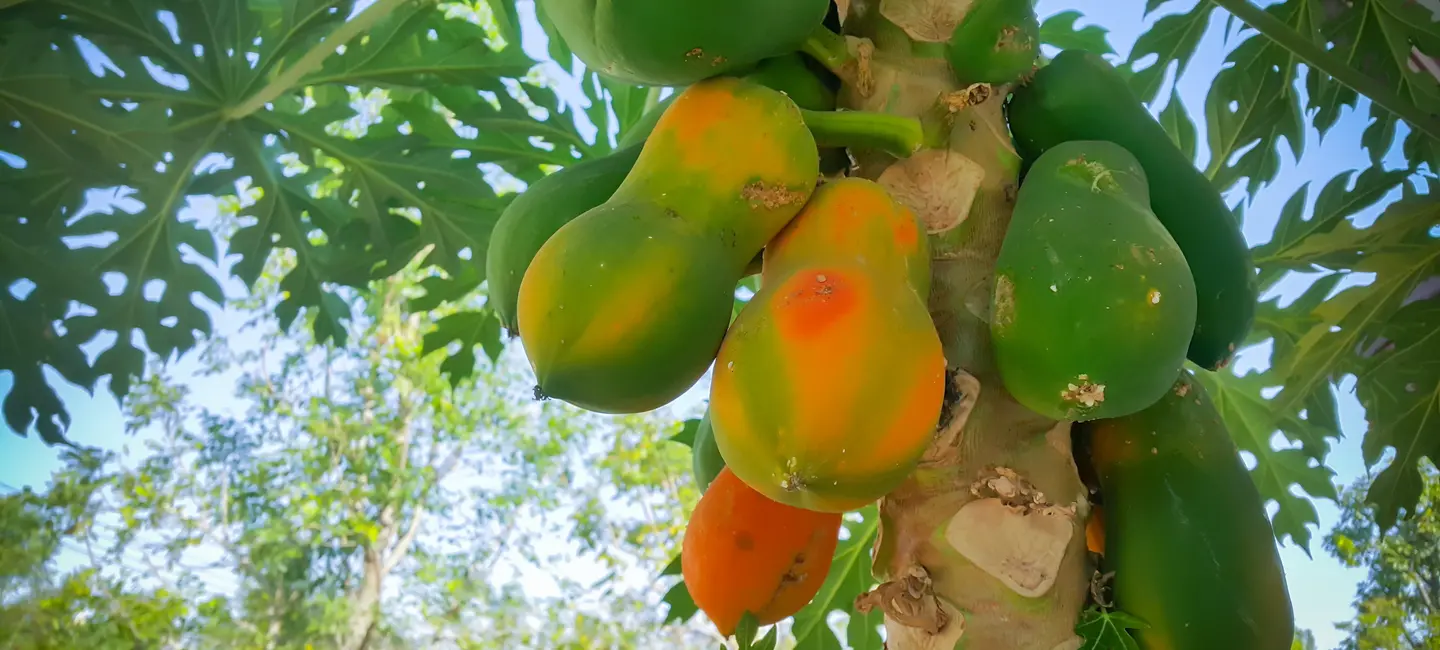
Papaya (Carica papaya) is a tropical tree. Its ripe fruit is considered safe, but unripe papaya fruit contains papain and can damage the esophagus.
Unripe papaya contains a chemical called papain. Papain breaks down proteins, carbohydrates, and fats. But papain is changed in the stomach, so it's not clear if it's effective as medicine when taken by mouth. Papaya also contains a chemical called carpain, which seems to be able to kill certain parasites and might affect the central nervous system.
People use papaya for cancer, diabetes, dengue fever, HPV, and many other conditions, but there's no good scientific evidence to support these uses.
Is It Effective?
There is interest in using papaya for a number of purposes, but there isn't enough reliable information to say whether it might be helpful.
Is it Safe?
When taken by mouth: Papaya fruit is a common food. Papaya leaf extract is possibly safe when taken as medicine for up to 5 days. Side effects might include nausea and vomiting.
The unripe papaya fruit is possibly unsafe. Unripe papaya fruit contains papaya latex, which contains an enzyme called papain. Taking large amounts of papain might damage the esophagus.
When applied to the skin: The ripe papaya fruit is possibly safe when applied to the skin or gums for up to 10 days. Applying unripe papaya fruit to the skin is possibly unsafe. Unripe papaya fruit contains papaya latex. This can cause severe irritation and allergic reactions in some people.
Special Precautions & Warnings:
Pregnancy: Ripe papaya fruit is commonly consumed in foods. Unripe papaya fruit is possibly unsafe when taken by mouth during pregnancy. There is some evidence that unprocessed papain, one of the chemicals found in unripe papaya fruit, might poison the fetus or cause birth defects.
Breast-feeding: Ripe papaya fruit is commonly consumed in foods. There isn't enough reliable information to know if papaya is safe to use as medicine when breast-feeding. Stay on the safe side and stick to food amounts.
Latex allergy: If you have a latex allergy, use caution with papaya or products that contain papaya. You may also be allergic to papaya.
Papain allergy: Unripe papaya contains papain. If you are allergic to papain, avoid unripe papaya.
Surgery: Papaya that has been fermented can lower blood sugar. This form of papaya might affect blood sugar during and after surgery. If you are taking papaya, you should stop 2 weeks before surgery.
Amiodarone (Cordarone)
Interaction Rating=Moderate Be cautious with this combination.
Taking papaya extract by mouth along with amiodarone might increase the amount of amiodarone in the body. This might increase the effects and adverse effects of amiodarone.
Levothyroxine (Synthroid, others)
Interaction Rating=Moderate Be cautious with this combination.
Eating large amounts of papaya might reduce the effects of levothyroxine.
Medications for diabetes (Antidiabetes drugs)
Interaction Rating=Moderate Be cautious with this combination.
Papaya might lower blood sugar levels. Taking papaya along with diabetes medications might cause blood sugar to drop too low. Monitor your blood sugar closely.
Warfarin (Coumadin)
Interaction Rating=Moderate Be cautious with this combination.
Warfarin is used to slow blood clotting. Papaya might increase the effects of warfarin and increase the chances of bruising and bleeding. Be sure to have your blood checked regularly. The dose of your warfarin might need to be changed.
Herbs and supplements that might lower blood sugar: Papaya might lower blood sugar. Taking it with other supplements with similar effects might lower blood sugar too much. Examples of supplements with this effect include aloe, bitter melon, cassia cinnamon, chromium, and prickly pear cactus.
There are no known interactions with foods.
The ripe papaya fruit is commonly consumed as food. Papaya leaf is sometimes found in supplements, but there isn't enough reliable information to know what an appropriate dose of papaya leaf might be. Keep in mind that natural products are not always necessarily safe and dosages can be important. Be sure to follow relevant directions on product labels and consult a healthcare professional before using.
Banane de Prairie, Caricae Papayae Folium, Carica papaya, Carica peltata, Carica posoposa, Chirbhita, Erandachirbhita, Erand Karkati, Green Papaya, Mamaerie, Melonenbaumblaetter, Melon Tree, Papaw, Papaya Fruit, Papayas, Papaye, Papaye Verte, Papayer, Papita, Paw Paw, Pawpaw.
Information on this website is for informational use only and is not intended to replace professional medical advice, diagnosis, or treatment. While evidence-based, it is not guaranteed to be error-free and is not intended to meet any particular user’s needs or requirements or to cover all possible uses, safety concerns, interactions, outcomes, or adverse effects. Always check with your doctor or other medical professional before making healthcare decisions (including taking any medication) and do not delay or disregard seeking medical advice or treatment based on any information displayed on this website.
© TRC Healthcare 2024. All rights reserved. Use and/or distribution is permitted only pursuant to a valid license or other permission from TRC Healthcare.
